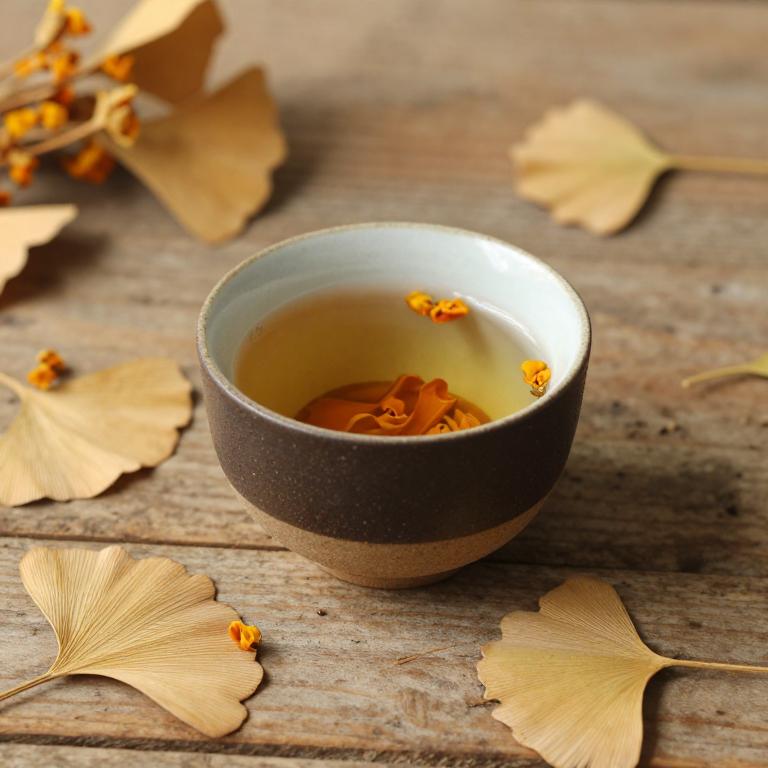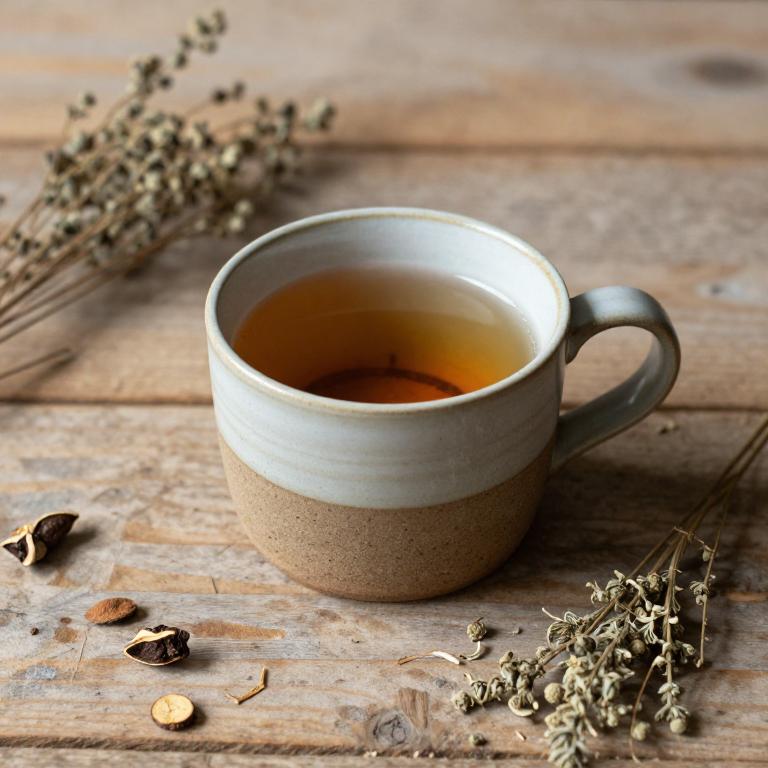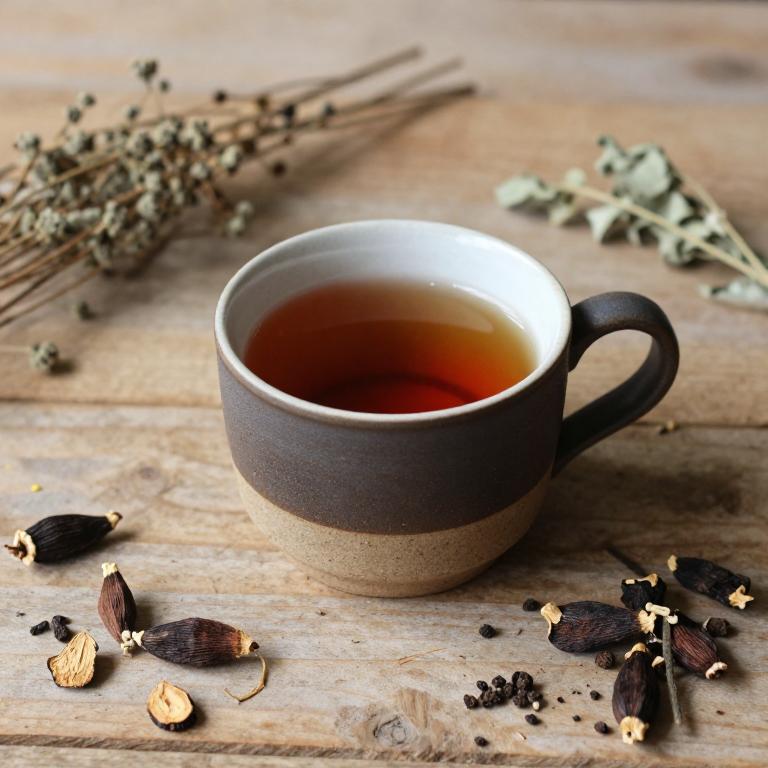10 Best Herbal Teas For One Side Headache

Herbal teas can be a natural and effective remedy for alleviating one-sided headaches, often caused by tension, migraines, or sinus issues.
Chamomile tea is particularly popular for its calming properties that may help reduce stress-related headaches. Peppermint tea is known for its cooling effect and can help relieve tension in the muscles around the head and neck. Additionally, ginger tea can help reduce inflammation and nausea often associated with headaches.
Incorporating these herbal teas into a daily routine, along with rest and hydration, may offer a gentle and holistic approach to managing one-sided headaches.
Table of Contents
- 1. Rosemary (Rosmarinus officinalis)
- 2. Chaste tree (Vitex agnus-castus)
- 3. Ginkgo (Ginkgo biloba)
- 4. Salvia (Salvia officinalis)
- 5. Stinging nettle (Urtica dioica)
- 6. Echinacea (Echinacea purpurea)
- 7. Chamomile (Matricaria chamomilla)
- 8. Ceylon cinnamon (Cinnamomum verum)
- 9. Black pepper (Piper nigrum)
- 10. Fennel (Foeniculum vulgare)
1. Rosemary (Rosmarinus officinalis)

Rosmarinus officinalis, commonly known as rosemary, is a popular herb used in herbal teas to help alleviate symptoms of a one-sided headache.
The essential oils in rosemary, particularly cineole and camphor, are believed to have anti-inflammatory and analgesic properties that can ease pain and reduce tension. When brewed into a tea, rosemary can promote relaxation and improve blood circulation, which may help ease the discomfort of a headache. It is often recommended to drink rosemary tea slowly and in moderation for best results.
However, individuals with high blood pressure or those taking certain medications should consult a healthcare professional before using rosemary as a remedy.
2. Chaste tree (Vitex agnus-castus)

Vitex agnus-castus, commonly known as chasteberry, has been traditionally used in herbal medicine to support hormonal balance and alleviate symptoms related to menstrual cycles.
When brewed into a herbal tea, it may help reduce the frequency and intensity of one-sided headaches, often associated with hormonal fluctuations. The herb is believed to influence the pituitary gland, potentially regulating estrogen levels that can contribute to headaches. While scientific evidence is limited, many users report relief from tension headaches and migraines through regular consumption of chasteberry tea.
As with any herbal remedy, it is advisable to consult a healthcare professional before use, especially for those with existing medical conditions or on medication.
3. Ginkgo (Ginkgo biloba)

Ginkgo biloba herbal tea is often used to support cognitive function and improve blood circulation, which may help alleviate symptoms of one-sided headaches.
The tea contains antioxidants and flavonoids that can reduce inflammation and enhance oxygen flow to the brain, potentially easing tension and migraines. While not a cure, it is sometimes recommended as a complementary therapy for those seeking natural relief. However, it is important to consult a healthcare professional before using ginkgo biloba, especially if you are on medication or have underlying health conditions.
Overall, ginkgo biloba herbal tea may offer some relief for one-sided headaches, but its effectiveness can vary among individuals.
4. Salvia (Salvia officinalis)

Salvia officinalis, commonly known as sage, is often used in herbal teas to help alleviate symptoms of a one-sided headache.
The plant contains compounds like rosmarinic acid and flavonoids, which may have anti-inflammatory and analgesic properties that can reduce headache intensity. Some studies suggest that sage tea may help improve circulation and reduce stress, both of which can contribute to headache relief. However, it is important to consult a healthcare professional before using sage tea, especially for persistent or severe headaches.
While sage tea may offer natural relief, it should not replace medical treatment for underlying conditions causing the headache.
5. Stinging nettle (Urtica dioica)

Urtica dioica, commonly known as stinging nettle, is a herb that has been traditionally used for its potential health benefits, including缓解 headaches.
When prepared as a herbal tea, it may help alleviate symptoms of one-sided headaches, such as those associated with migraines, due to its anti-inflammatory and analgesic properties. The tea is believed to support detoxification and improve circulation, which can contribute to reducing headache frequency and intensity. To prepare the tea, fresh or dried nettle leaves are steeped in hot water for several minutes.
However, it is important to consult with a healthcare professional before using nettle tea, especially for individuals with certain medical conditions or those taking medications.
6. Echinacea (Echinacea purpurea)

Echinacea purpurea, commonly known as purple coneflower, is a popular herbal remedy often used to support the immune system and alleviate symptoms of colds and flu.
While it is not a direct treatment for headaches, some studies suggest that its anti-inflammatory and antioxidant properties may help reduce inflammation and oxidative stress, which can contribute to headache symptoms. Echinacea herbal teas are typically made by steeping the dried flowers and leaves in hot water, creating a mild, earthy-flavored beverage. Many people use echinacea tea as a natural alternative to over-the-counter pain relievers, though it is important to consult a healthcare provider before use, especially for those with allergies or chronic health conditions.
Overall, echinacea purpurea herbal tea may offer some relief for one-sided headaches, but it should be used as part of a broader approach to headache management.
7. Chamomile (Matricaria chamomilla)

Matricaria chamomilla, commonly known as chamomile, is a popular herbal tea often used for its calming and soothing properties.
It is particularly beneficial for relieving mild headaches, especially those caused by stress or tension. The tea contains compounds like apigenin, which may help reduce inflammation and relax muscle tension in the head and neck area. Drinking a cup of chamomile tea can promote relaxation and improve sleep, both of which can aid in alleviating headache symptoms.
While it is generally safe for most people, it is advisable to consult a healthcare professional if headaches persist or worsen.
8. Ceylon cinnamon (Cinnamomum verum)

Cinnamomum verum, commonly known as true cinnamon, is often used in herbal teas to help alleviate symptoms of a one-sided headache.
The essential oils in cinnamon possess anti-inflammatory and analgesic properties that may help reduce pain and inflammation associated with headaches. When brewed into a tea, cinnamon can promote relaxation and improve blood circulation, which may ease tension-related headaches. To prepare the tea, simply steep a teaspoon of cinnamon bark in hot water for several minutes.
While cinnamon tea is generally safe, it is advisable to consult a healthcare professional if headaches persist or worsen, as they may indicate a more serious underlying condition.
9. Black pepper (Piper nigrum)

Piper nigrum, commonly known as black pepper, is often used in herbal teas to alleviate symptoms of a one-sided headache.
The essential oils and compounds found in black pepper, such as piperine, may help improve blood circulation and reduce inflammation, which can contribute to headache relief. When brewed into a tea, black pepper can provide a gentle warming effect that may ease tension in the head and neck area. It is typically combined with other herbs like ginger or peppermint to enhance its soothing properties.
However, it is important to consult a healthcare professional before using black pepper tea, especially if the headache is persistent or severe.
10. Fennel (Foeniculum vulgare)

Foeniculum vulgare, commonly known as fennel, is often used in herbal teas to alleviate symptoms of a one-sided headache.
The essential oils in fennel, particularly anethol, have mild analgesic and anti-inflammatory properties that may help reduce pain and tension. When brewed as a tea, fennel can promote relaxation and ease digestive discomfort, which are often associated with headaches. It is typically consumed warm, with a teaspoon of dried fennel seeds steeped in hot water for several minutes.
While not a cure-all, fennel tea may serve as a natural remedy to support headache relief when used as part of a holistic approach to wellness.